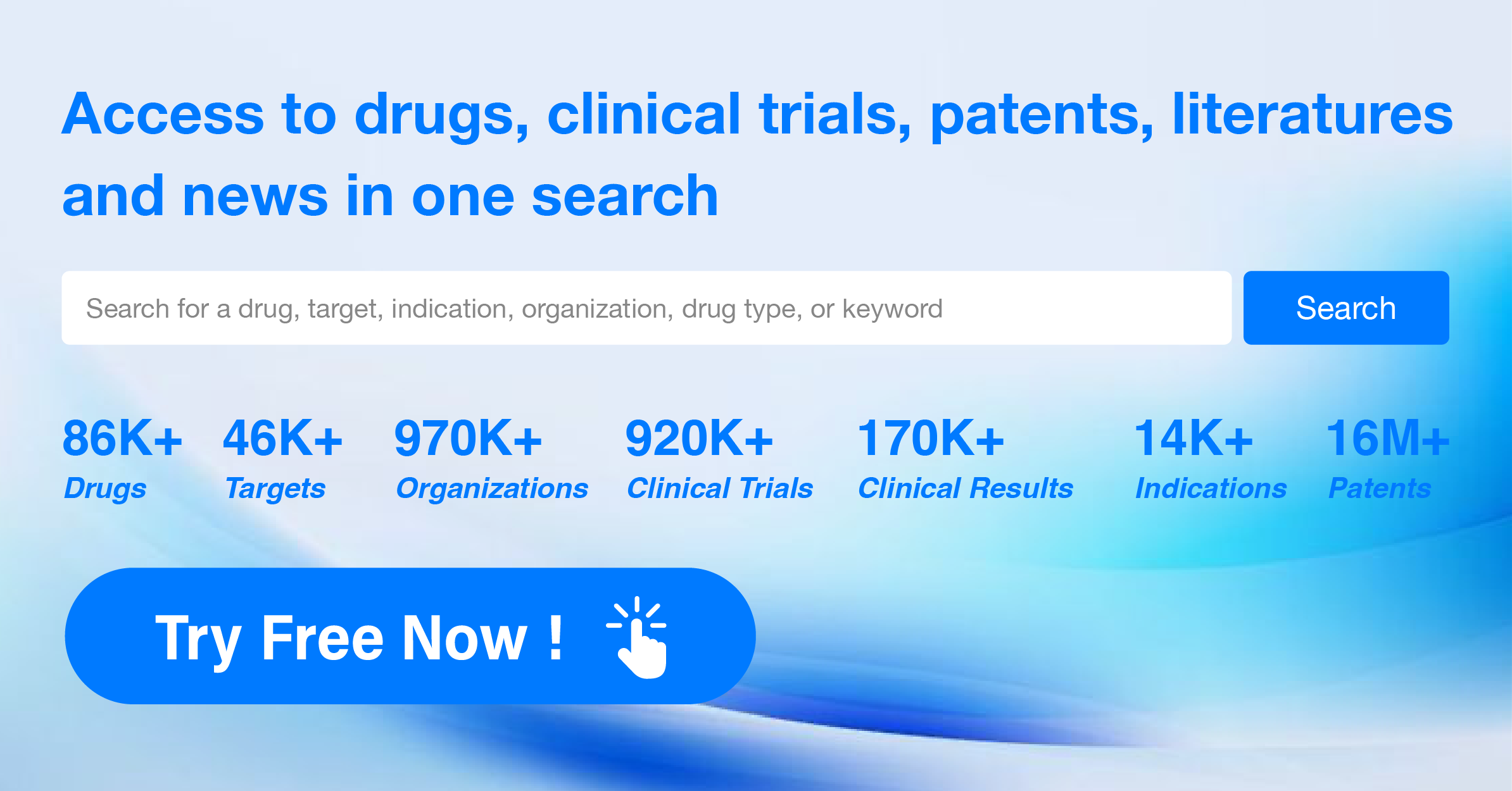Pharma Frontiers: Daily Digest of Global Pharmaceutical News - May 18
1.Hengrui Pharmaceutical's PD-1 Combination Therapy Camrelizumab + Apatinib Postpones U.S. Launch
On May 17, HLB-LS, the parent company of Elevar Therapeutics, announced that it had received a Complete Response Letter (CRL) from the FDA regarding the New Drug Application (NDA) for the combination of Camrelizumab and Apatinib for the first-line treatment of patients with unresectable hepatocellular carcinoma (HCC). The CRL emphasized two main issues: ①chemistry, manufacturing, and controls (CMC); ②incomplete FDA inspections of key clinical trial sites in Russia and Ukraine. The Chairman of HLB-LS stated that these issues are not fundamental and that the company will promptly collaborate with Hengrui Pharmaceutical to address the FDA's concerns and resubmit the relevant documents in a timely manner.
The NDA is primarily based on the positive results from the Phase III CARES-310 study, an international multicenter, randomized, open-label clinical trial that enrolled 543 patients with advanced HCC who had not received prior systemic therapy. The trial evaluated the safety and efficacy of Camrelizumab + Apatinib compared to Sorafenib in this patient population. The primary endpoints were progression-free survival (PFS) and overall survival (OS). Results showed that patients in the Camrelizumab + Apatinib group had significantly longer PFS (5.6 vs. 3.7 months, HR=0.52, one-sided p-value <0.0001) and OS (22.1 vs. 15.2 months, HR=0.62, one-sided p-value <0.0001) compared to the Sorafenib group. Additionally, the confirmed objective response rate (ORR) was 25.4% for the Camrelizumab + Apatinib group, compared to 5.9% for the Sorafenib group.
At the end of January 2023, this combination therapy was approved by the National Medical Products Administration (NMPA) for the first-line treatment of patients with unresectable or metastatic HCC who have not received prior systemic therapy. This approval marks the first domestically approved PD-1 inhibitor + small molecule anti-angiogenesis drug combination for the treatment of advanced hepatocellular carcinoma, offering a new therapeutic option for patients with advanced liver cancer.
2.Junshi Biosciences Announces Phase 3 Clinical Study Data for Anti-PCSK9 Monoclonal Antibody Ongericimab!
On May 17, Junshi Biosciences announced the Phase 3 clinical study data of its recombinant humanized anti-PCSK9 monoclonal antibody Ongericimab for the treatment of primary hypercholesterolemia and mixed dyslipidemia. The study data was published in the international academic journal Nutrition Metabolism and Cardiovascular Diseases (NMCD). In this study, Ongericimab demonstrated significant lipid-lowering effects, with patients receiving treatment once every two weeks, resulting in a reduction of over 70% in low-density lipoprotein cholesterol (LDL-C, or "bad cholesterol") levels at 12 weeks. PCSK9 has become an emerging target in the cardiovascular field. PCSK9 inhibitors, as a new class of potent lipid-lowering drugs, have been recommended by lipid management guidelines worldwide and have gained wide recognition among clinicians. Researchers have achieved inhibition of the PCSK9 target across various novel molecular types, including monoclonal antibodies, siRNAs, ASO drugs, small molecule drugs, and gene editing therapies, making continued progress in clinical development. Ongericimab is a subcutaneous injection of an anti-PCSK9 monoclonal antibody independently developed by Junshi Biosciences, intended for the treatment of primary hypercholesterolemia and mixed dyslipidemia. Currently, the Center for Drug Evaluation (CDE) of the China National Medical Products Administration (NMPA) has accepted four New Drug Applications (NDAs) for this product. It is reported that to ensure ease of use and convenience for patients, in addition to the pre-filled syringe (PFS) subcutaneous injection method, Junshi Biosciences has also developed a pre-filled auto-injector (AI) subcutaneous injection method that allows patients or their caregivers to administer the medication at home, eliminating the need for healthcare professionals to perform the injections and further enhancing medication convenience.
3.Drug Farm Initiates Phase 1b Clinical Trial of Potential "First-in-Class" New Drug DF-003 in the United States
On May 17, Drug Farm announced that the U.S. FDA has approved the Investigational New Drug (IND) application for DF-003. According to the Drug Farm press release, DF-003 is a potential "first-in-class" ALPK1 kinase inhibitor characterized by its oral administration, potent efficacy, and high selectivity, and it will be tested in patients with ROSAH syndrome. This trial will evaluate the safety, pharmacokinetics, and efficacy of DF-003 in patients with this rare disease. ROSAH (Retinal Dystrophy, Optic Nerve Edema, Splenomegaly, Anhidrosis, and Headache) syndrome is a rare autosomal dominant hereditary autoinflammatory disease named after its characteristic symptoms observed in affected patients. The disease is caused by a high-activity gain-of-function mutation in ALPK1, with the most common symptom being progressive vision loss, typically beginning before the age of 20. Ophthalmological examinations usually reveal elevated optic discs, uveitis, and retinal nerve degeneration. Most ROSAH patients also exhibit inflammatory features such as non-infectious low-grade fever, arthralgia, headaches, and persistently elevated levels of inflammatory cytokines, including tumor necrosis factor-alpha (TNFα), interleukin-6 (IL-6), and IL-1β.
DF-003 is a potential "first-in-class" new drug developed by Drug Farm based on its proprietary target discovery platform IDInVivo+ and the Medchem5 artificial intelligence drug chemistry platform. It inhibits the activity of both ALPK1 and its mutant variants, whose high-activity gain-of-function mutations cause ROSAH syndrome. In preclinical studies using ROSAH mouse disease models, DF-003 demonstrated significant activity. This January, DF-003 was granted the FDA's Rare Pediatric Disease Designation (RPDD). Additionally, DF-003 completed Phase 1 clinical evaluation in healthy subjects, with excellent safety and pharmacokinetic data supporting a once-daily oral dosing regimen in the upcoming trial for ROSAH patients.
4.Challenge Tislelizumab! Jiakesi New Drug Development Initiates First Head-to-Head Phase III Clinical Trial with Glecirasib
On May 16th, information on the Clinicaltrials website indicated that Jiakesi has initiated a Phase III study (n=392) to compare the efficacy of Glecirasib combined with JAB-3312 versus Tislelizumab combined with Pemetrexed and Carboplatin as first-line treatment for patients with advanced non-squamous non-small cell lung cancer (NSCLC) harboring KRAS p.G12C mutation. The primary endpoint of the study is progression-free survival (PFS). This trial is also the first Phase III clinical trial initiated by Jiakesi for Glecirasib. Previously, Jiakesi had submitted a registration application to the CDE for a Phase III clinical trial of Glecirasib combined with anti-EGFR monoclonal antibody Cetuximab for the treatment of colorectal cancer. This application has been approved, but the study has not yet commenced.
Glecirasib is a potent, irreversible KRAS G12C inhibitor independently developed by Jiakesi. It covalently binds to the cysteine residue at the 12th position of the mutated KRAS G12C, locking KRAS G12C in its inactive state, thereby blocking KRAS-dependent signal transduction, inhibiting tumor cell proliferation, and inducing apoptosis.
JAB-3312 is an allosteric SHP2 inhibitor also independently developed by Jiakesi. On May 1st this year, Jiakesi announced that the registration Phase II clinical trial of Glecirasib as a second-line treatment for NSCLC had achieved its primary endpoint. Results showed a confirmed overall response rate (ORR) of 47.9% (56/117) among NSCLC patients in the second-line monotherapy cohort, including 4 patients with complete response (CR) and 36 patients whose tumors shrank by more than 50%, with a disease control rate of 86.3%. The median progression-free survival (mPFS) was 8.2 months, and the median overall survival (mOS) was 13.6 months. The data on the median duration of response (mDoR) are not yet mature, with response durations of 73.6% and 56.6% at 6 months and 12 months, respectively. In terms of safety, Glecirasib exhibited a favorable safety profile.
5.AbbVie's JAK Inhibitor Upadacitinib Extended-Release Tablets Proposed for Breakthrough Therapy Status
On May 16, the website of China's Center for Drug Evaluation (CDE) of the National Medical Products Administration announced that upadacitinib tablets, submitted by AbbVie, are proposed to be included in breakthrough therapy status. The proposed indication is for the treatment of non-segmental vitiligo in adolescents aged 12 and older and adults. Publicly available information indicates that upadacitinib is a Janus kinase (JAK) inhibitor and has previously been approved in China for multiple other indications. According to information from AbbVie’s official website, the indication of upadacitinib extended-release tablets for vitiligo is currently in Phase 3 clinical trials. The JAK family comprises non-receptor tyrosine kinases, including four subtypes: JAK1, JAK2, JAK3, and TYK2. These kinases play important roles in the signal transduction pathways of various type I and type II cytokine receptors, and they are involved in cellular processes such as proliferation, differentiation, apoptosis, and inflammation. Upadacitinib extended-release tablets are selective JAK inhibitors, with preclinical studies showing that they exhibit stronger inhibitory activity on JAK1 compared to JAK2, JAK3, and TYK2. This proposal to include upadacitinib in the breakthrough therapy status pertains to a new indication—non-segmental vitiligo (NSV). In October 2023, AbbVie announced that upadacitinib extended-release tablets achieved the primary endpoint in a Phase 2b clinical trial for treating adult patients with non-segmental vitiligo. Data show that at Week 24, compared to placebo, the 11mg and 22mg doses of upadacitinib achieved the primary endpoint of percentage change from baseline (%CFB) in the Facial Vitiligo Area Scoring Index (F-VASI); moreover, at Week 52, the mean percentage reduction in F-VASI from baseline was numerically greater for all upadacitinib dose groups compared to the results at Week 24.
6.Hasten Biopharmaceuticals Introduces “Once-Monthly” Long-Acting PCSK9 Inhibitor Approved for Clinical Trials in China
On May 17, according to a notice published on the official website of the Center for Drug Evaluation (CDE) of the National Medical Products Administration (NMPA) of China, LIB Therapeutics has submitted a Category 1 new drug application for lerodalcibep, which has been granted implied authorization for clinical trials. The drug is being developed for the treatment of adults with atherosclerotic cardiovascular disease (ASCVD), including those at very high or high risk of ASCVD and patients with heterozygous familial hypercholesterolemia, to further reduce low-density lipoprotein cholesterol (LDL-C) levels. Publicly available information indicates that lerodalcibep is a third-generation long-acting PCSK9 inhibitor developed by LIB Therapeutics that requires only one injection per month. In 2023, Hasten Biopharmaceuticals obtained the exclusive development and commercialization rights for this drug in the Greater China region through a partnership valued at up to $325 million.
The Chinese full name of PCSK9 is "Proprotein Convertase Subtilisin/Kexin Type 9," which is an emerging target in lipid-lowering drug development. Research has shown that inhibiting PCSK9 can reduce LDL-C levels in the body, thereby achieving therapeutic effects. The use of PCSK9 inhibitors on top of statin background therapy has been proven to significantly lower cholesterol and reduce the incidence of heart attacks or strokes in patients.
The lerodalcibep fusion protein is a third-generation long-acting PCSK9 inhibitor currently in Phase 3 clinical development internationally. According to publicly available information from Hasten Biopharmaceuticals, compared to traditional PCSK9 inhibitor monoclonal antibodies, lerodalcibep requires only one injection per month and involves a smaller injection volume, which can help reduce adverse reactions at the injection site and immunogenicity. Furthermore, the drug has more stable properties at room temperature. Therefore, lerodalcibep is expected to help more patients with hyperlipidemia achieve their lipid control targets.
7.Over $850 million! Johnson & Johnson Acquires Proteologix, Securing Multiple Bispecific Antibodies
On May 16, Johnson & Johnson announced that it has reached a definitive agreement to acquire Proteologix for $850 million in cash. In addition, Proteologix is eligible for additional milestone payments. Proteologix focuses on developing bispecific antibodies for the treatment of immune-mediated diseases. Their product portfolio includes: 1) PX128, a bispecific antibody targeting IL-13 and TSLP, which is about to enter Phase I clinical studies for the treatment of moderate-to-severe atopic dermatitis (AD) and moderate-to-severe asthma; 2) PX130, a bispecific antibody targeting IL-13 and IL-22, intended for the treatment of moderate-to-severe AD, currently in preclinical development. PX128 can inhibit IL-13 mediated Th2-type skin inflammation, a key pathogenic pathway for AD and asthma, and can also inhibit TSLP, a mediator molecule that triggers tissue inflammation in AD and asthma. Similar to PX128, PX130 can inhibit IL-13 mediated Th2-type skin inflammation. PX130 can also inhibit IL-22 to repair the skin barrier and prevent inflammation triggered by environmental allergens and other factors. Given that AD and asthma are heterogeneous diseases with different pathogenic pathways in various patient subgroups, targeting multiple pathways is expected to achieve better efficacy and remission rates.
Currently, Johnson & Johnson has multiple bispecific antibody products in its pipeline targeting solid tumors, hematologic malignancies, and autoimmune diseases. Among these are Amivantamab (EGFR/c-MET bispecific antibody for non-small cell lung cancer), Talquetamab (GPRC5D/CD3 bispecific antibody for multiple myeloma), and Teclistamab (BCMA/CD3 bispecific antibody for multiple myeloma), all of which have received FDA approval for commercialization. There are also 18 products in Phase I-II clinical trials, and 10 products in preclinical development. The press release indicated that the two products acquired in this transaction are designed to reduce dosing frequency, providing convenience for patients and are expected to complement Johnson & Johnson's existing bispecific antibody pipeline.




